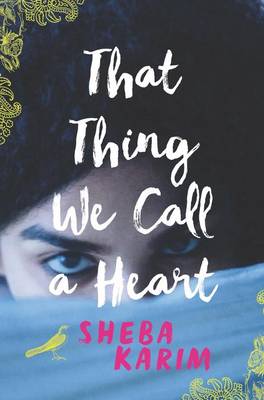
Sam@WLABB
Written on May 14, 2017
These are the type of diverse reads that I love. I have starting calling them "bridge books", because I believe they do such a good job of letting people of other faiths/cultures gain a little insight into another person's faith/culture. I was reading a review by Jen of YA Romantics, and she nailed what I think is so perfect about a book like this: while teaching us about differences, it also reminds us how we are the same. This has been my battle cry for so long, and I am elated to see so many books lately, that are doing this so well.
I instantly took a liking to Shabnam. She was not great at editing her stream of consciousness, and some really amusing and honest things often came out. But it was ok, because she was growing and changing, and this was all part of her process. I was glad she went through this process, because in the beginning of the book, I was sort of disappointed in her. I thought she really under appreciated her parents, was insensitive to Farah's big life change, and made too much of an effort to impress people who should not have even mattered. But by the end of the book, I was so proud of all the work she did to mend her relationship with Farah, to build a relationship with her parents, and to get to know her roots a little better.
"You're Muslim?"
"My mother is," I told her.
"What's your dad?"
"Weird."
She snorted. "And what about you?"
"Me? I'm...nothing."
"You can't be nothing. At minimum, you're a Homo sapiens."
The rift between Shabnam and Farah grew from Farah deciding to be a hijabi. Her choice to wear the scarf, and outwardly declare herself a Muslim made Shabnam uncomfortable. This whole storyline made me sad, because although I thought Shabnam should not be ashamed of being seen with Farah, I knew there was a whole lot of truth to her concerns, and that just made me ashamed of society.
"I knew a piece of cloth should't make a difference, that she was still the same person underneath, but it did make a difference."
One aspect of this book, which I really loved, was the inclusion of Urdu poetry. Shabnam originally began asking her father about the poetry as a way to impress Jamie, but over time, it became a way for her to connect to her father. It was beautiful to see the relationship between Shabnam and her socially awkward mathematician father grow. Karim thoughtfully wove the poetry into the story, and each line selected was beautiful and meaningful within Shabnam's story.
"I felt like a different person than when he'd first visited. Broken, but determined to put myself back together, hopefully into something stronger."
This was a lovely and often amusing story about first love, first heartbreak, family, friendships, and finding oneself. I throughly enjoyed this book, and hope to read more of Karim's work.
**I would like to thank Edelweiss and the publisher for the advanced copy of this book. Quotes are from an ARC and may change upon publication.
BLOG|INSTAGRAM|BLOGLOVIN| FRIEND ME ON GOODREADS
